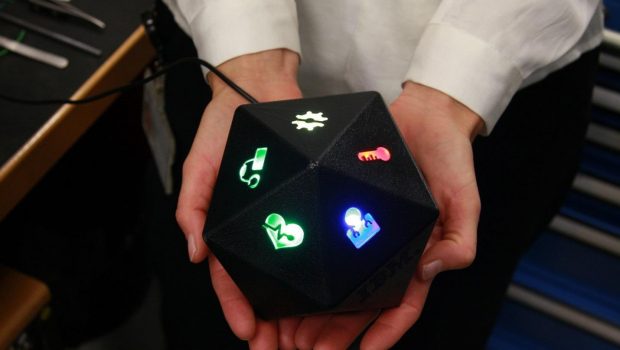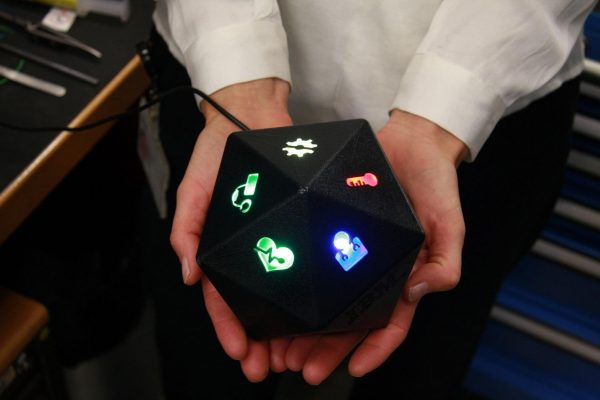The Future of IoT in Medicine: How Many Steps Did You Take, Today?
The future of IoT, when it comes to wearable technology, is swiftly approaching. Beyond creating fitness goals or tracking the number of steps we take, the healthcare industry plans to allow patients the option of utilizing devices to communicate with healthcare providers, streamlining the delivery of information as well as the implementation of data in order to cut down on medical expenses, time, and unnecessary check-ups.
Furthermore, people will be able to determine the extent to which they want to expose various parts of their lives to technological tracking, and there are advantages and disadvantages to each decision, of course. We simply need to make sure that we are in control of information and data about ourselves that companies inevitably want to capitalize upon. We should remain aware of the security risks involved with adopting these tools, as well.
Here are a few concrete applications and examples of IoT and big data as they apply to wearable technology, global health, and cybersecurity.
I. Wearable Technology
In the future, wearable device data will go beyond creating fitness goals. Rather, it will be used to inform medical professionals about their patients’ health. However, whether or not the data is actionable depends upon reliable data being securely gathered, transmitted, and analyzed. Ideally, patient data will eventually be seamlessly integrated into a patient’s electronic medical record (EMR), and artificial intelligence and machine learning will eventually enable the process to be partially or fully automated.
Moreover, according to The Week, insurance companies are already offering insurer-paid wellness incentives to their employees “[If] they agree to wear a fitness tracker or pedometer or use a fitness app to record their activity.” In return for reaching personal health goals, customers receive incentives like reduced premiums, bonus discounts—even gift cards! However, Ifeoma Ajunwa, Kate Crawford, and Jason Schultz conducted a study in 2016 finding insufficient protections for employee health data—which is troubling since employers sometimes discriminate against employees who are considered “high risk.” Although employers are prohibited by law from collecting health data from employees, different rules apply to wellness programs.
II. Global Health
In today’s fast-paced world, we’re increasingly utilizing social media platforms like Twitter as our baseline for how fast news must travel in order for most connected folks to feel well-informed and out of harm’s way. Consider, then, a public health crisis in light of this new standard. For epidemiologists and public health officials in the thick of an outbreak, technology like apps that allow for data-mapping of outbreaks are potentially life-saving.
Such was the case with big data’s role in the recent Ebola crisis, when timing was of the essence. Luckily, a few start-ups and tech companies like Edutrac and U-Report were able to assist UNICEF in their planning and emergency response to the situation. These platforms were able to pinpoint those groups most urgently in need of aid and how they were dealing with the situation.
Because a proactive approach is so crucial to adequate preparedness, Bill Gates recently stressed the importance of acting promptly in the face of global epidemics like Ebola—or, similarly, a crisis like war:
The North Atlantic Treaty Organization (NATO) has a mobile unit that is ready to deploy quickly. Although the system is not perfect, NATO countries participate in joint exercises in which they work out logistics such as how fuel and food will be provided, what language they will speak, and what radio frequencies will be used. Few, if any, such measures are in place for response to an epidemic.
He goes on to explain that the problem is not the fault of any one institution, but instead reflects a global failure. Gates then calls for a global surveillance system in order to improve our ability to deal with epidemics and global health, as a whole.
III. Cybersecurity
In every discussion of wearable technology, the Internet of Things, and healthcare apps that I’ve come across, there’s always a huge caveat that security concerns must be considered, and that cybersecurity professionals are desperately needed. In short, there’s both a shortage of cybersecurity experts—especially in health care—as well as an ongoing proliferation of IoT and hacking incidents that doesn’t appear to be slowing down anytime soon.
To be specific, cyberattacks on healthcare companies has reportedly grown by 320 percent from 2015 to 2016. That’s no small figure! Moreover, the most common types of cyberattacks include stolen health information and financial data, ransomware, insurance fraud, and social engineering. What to do, then?
A huge player in future methods of defense looks to be artificial intelligence (AI), along with machine learning. Ideally, mobility data will be more easily shared in a secure manner among related organizations—such as different clinics all working with the same patient or a similar diagnosis—in order to improve the quality of care and level of assessment.
* * *
Big data has the potential to radically change our lives. Luckily, we’re in control of how much it will influence our behavior and decisions. In extreme cases—such as with the new Quantified Self movement—we have the ability to begin resembling futuristic cyborgs through tracking every measurable piece of information, from steps taken to heart rate, breathing and snoring patterns, weight, body composition, and blood glucose levels.
Jessica Harneyford speculates, in a fascinating piece on the subject, about the consequences of what she calls “an extreme metrics mindset.” That is, what might this kind of mindset do to us, and how are our attitudes potentially changing as a result of the specific types of technology we decide to allow into our lives? Are we forgetting the importance of ambiguity and enjoyment of life, for the sake of authentic existence?
What do you think? Share your opinion in the comments section, below.
















